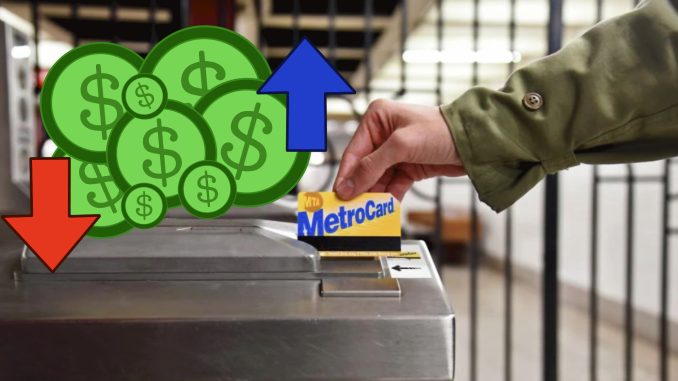
By Radwan Farraj
The MTA announced a proposal that would raise commuter fares by 5.5% to make up for a $600 million budget deficit that needs to be addressed in the coming year. The fare hike would go into effect sometime in 2023.
“We can definitely avoid a fair hike if there is a plan, an answer, coming from all the decision makers: Albany, Washington, and City Hall and maybe others, that fills the $600 million gap,” said MTA Chairman John “Janno” Lieber in a press conference on Nov. 30. “And if they also want to help us come up with an answer that makes the fare hike unnecessary, we’re all ears.”
MTA revenue has declined as ridership struggles to climb back to pre-pandemic levels. Prior to the pandemic, fare revenue made up $6.4 billion, or 42.1% of the MTA’s total revenue, according to the Office of the New York State Comptroller. MTA authorities have said that the proposed 5.5% fare hike, which could raise the current cost of a ride to $2.90, would be necessary to prevent higher hikes in the future.
“I think that the MTA needs fares to pay for its maintenance and construction and paying its employees, but what feels like arbitrary price hiking is just not the way to go about it,” said Carter Greene, a senior at BC. “If there’s just like every 10 years we’re gonna up the price by 50 cents, and if everybody in the world knows that it’s just an MTA thing, then I feel like people will be less mad about it.”
The MTA has not raised the $2.75 fare since 2015 but has typically increased the fare in increments of 4% every two to three years since 2009. MTA officials considered increasing the fare last year but decided against it, instead raising bridge and tunnel tolls by 7% to compensate, according to Gothamist.
“I feel like if they [the MTA] talk to the community and be like, ‘Oh you think it’s an increase?,’ a lot of people, they’re not gonna want it,” said Johnny Palacios, a junior at BC. “So if they go out and talk to the community, a lot of them are gonna agree, like, ‘Oh we wanted it to stay as is,’ or lower it down because living expenses have been increasing for a while now.”
Inflation has increased the cost of living for many over the past year and although inflation is not as volatile as it was a few months ago, there are still concerns about further interest rate increases by the Federal Reserve.
“I think if they had to raise it, they should have done so slowly in the sense like if it’s $2.75 now, it should be $2.80 to also let people have the time to – if you are a lower income New Yorker – get the funds or try to upgrade or try to figure out out a way that you can afford to get all those extra cents” said Kayla Gutierrez, a BC alum, explaining that it may be difficult for some New Yorkers to afford the cost difference at the end of a year.
The proposal precedes the MTA’s scheduled plan to phase out MetroCards and MetroCard dispensers for OMNY cards by 2024, which are available from select retailers like CVS or Walgreens. Fare-reduction programs available for MetroCard users are still not fully available for OMNY, which expects to see equivalent fare-reduction programs made available on a rolling basis. When asked about creating more fare-reduction programs, a MTA press representative redirected the Vanguard to a press release detailing the agency’s plans to cut costs in 2023.
